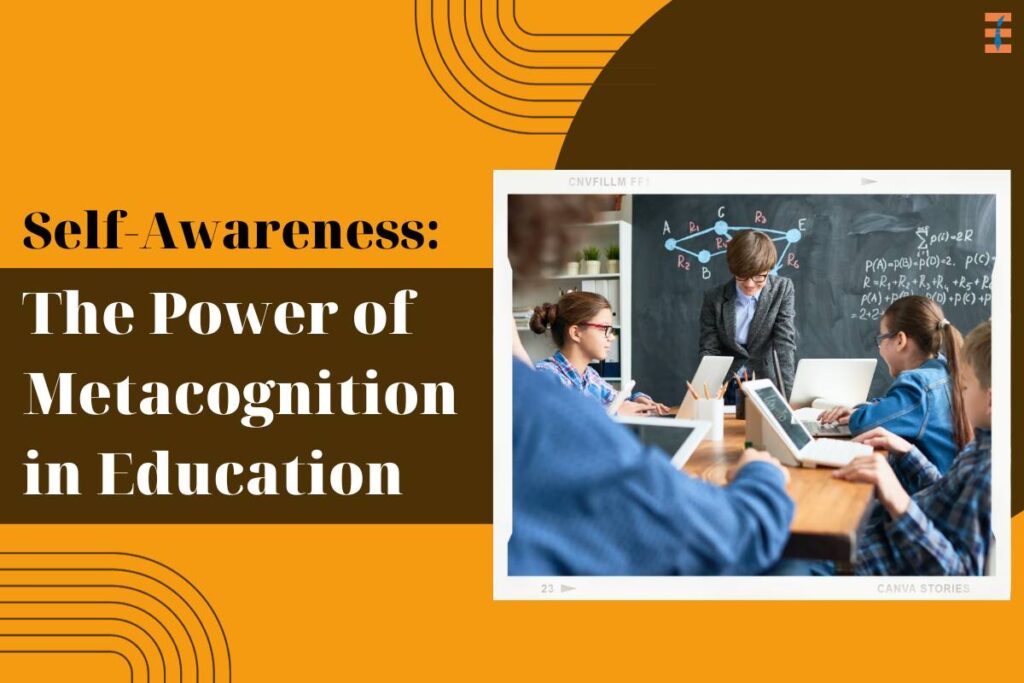Education is not just about acquiring knowledge; it’s also about developing essential life skills. One of these critical skills is self-awareness, which plays a foundational role in a student’s ability to learn and grow. Self-aware individuals have a greater understanding of their strengths and weaknesses, can regulate their learning strategies effectively, and make more informed decisions. In the classroom, metacognition, the awareness and control of one’s thought processes, is a powerful tool to foster self-awareness among students. In this article, we will explore the concept of metacognition and its significance in nurturing self-awareness in the classroom.
Understanding Metacognition
Metacognition is often defined as “thinking about thinking.” It involves the ability to reflect on and control one’s cognitive processes. Metacognitive skills enable students to monitor, plan, and evaluate their learning effectively. These skills are essential for students to become independent, self-regulated learners.
Metacognition encompasses several key components:
- Metacognitive Knowledge: This component involves understanding one’s cognitive strengths and weaknesses. It includes awareness of what one knows and what they don’t know, as well as recognition of effective learning strategies.

- Metacognitive Control Strategies: These are the tactics students use to plan, monitor, and evaluate their learning. They may include setting goals, choosing the right study strategies, and making adjustments as needed.
- Metacognitive Experiences: These experiences involve the feelings, beliefs, and attitudes associated with learning. Positive metacognitive experiences can boost self-efficacy and motivation.
Significance of Metacognition in the Classroom
Metacognition is not just a theoretical concept; it has tangible implications for students’ academic success and personal growth. Here are some of the key reasons why Self-Awareness through metacognition is crucial in the classroom:
- Improved Problem-Solving: Metacognitive learners are more adept at identifying problems in their understanding and taking steps to resolve them. They can adapt their strategies to tackle complex tasks effectively.
- Enhanced Self-Regulation: Self-awareness allows students to self-regulate their learning. They can set clear goals, monitor their progress, and make adjustments as needed to stay on track.
- Increased Motivation: Metacognition is closely linked to motivation. When students believe they have control over their learning, they are more motivated to invest effort and persist in the face of challenges.
- Better Learning Strategies: Metacognitive awareness enables students to select appropriate learning strategies. They can choose methods that align with their learning style and the specific requirements of a task.

- Deeper Understanding: By reflecting on their thought processes, students can develop a more profound understanding of the material. They can identify gaps in their knowledge and actively seek to fill them.
- Lifelong Learning Skills: Metacognition is a skill that extends beyond the classroom. It equips students with the tools they need to become lifelong learners, continually seeking to improve their understanding and skills.
Also Read: Self-Regulation Strategies to Deal with Transitions
Self-Awareness through Metacognition
Educators can play a pivotal role in nurturing self-awareness through metacognition in their classrooms. Here are strategies to foster metacognition and develop self-aware learners:
1. Teach Metacognitive Skills Explicitly
Begin by introducing students to the concept of metacognition. Explain its components and how it can enhance their learning. Show them the value of being aware of their thought processes and how it can lead to improved learning outcomes.
2. Encourage Self-Reflection
Foster self-reflection by asking open-ended questions. Encourage students to think about their learning experiences, such as what they found challenging, what strategies they used, and what they might do differently next time. Journals or reflection logs can be helpful tools for this purpose.
3. Set Clear Learning Goals
Teach students the importance of setting clear, specific learning goals. Help them break down their goals into manageable steps and monitor their progress. When students have a clear direction, they are more motivated and self-aware in their pursuit of those goals.
4. Provide Constructive Feedback
Offer constructive feedback on students’ work and learning strategies. Highlight areas for improvement and guide them on how to make necessary adjustments. Feedback should be specific and actionable.
5. Promote Critical Thinking
Encourage critical thinking and metacognitive awareness by asking students to explain their thought processes when solving problems or completing assignments. Ask them to consider why they chose a particular strategy or approach.
6. Teach Problem-Solving Strategies
Equip students with problem-solving strategies that go beyond the content. Teach them how to approach complex tasks, break them down into smaller steps, and identify potential obstacles. This not only helps with academic challenges but also fosters a problem-solving mindset in everyday life.
7. Use Metacognitive Tools

Incorporate metacognitive tools and techniques into the learning process. For instance, graphic organizers, self-assessment checklists, and concept mapping can help students organize their thoughts and reflect on their understanding.
8. Encourage Peer Collaboration
Peer collaboration can be an effective way to promote metacognition. Encourage students to discuss their thought processes and problem-solving strategies with their peers. This can lead to the exchange of ideas and insights and self-awareness in the process.
9. Emphasize Self-Regulation
Teach students how to self-regulate their learning by setting priorities, managing time effectively, and seeking resources when needed. Self-regulation is a key component of metacognition and self-awareness.
10. Cultivate a Growth Mindset
Promote a growth mindset in the classroom, emphasizing that intelligence and abilities can be developed through effort and learning. A growth mindset encourages students to embrace challenges and see failures as opportunities for growth.
Benefits of Nurturing Self-Awareness through Metacognition
The benefits of nurturing self-awareness through metacognition in the classroom are profound and far-reaching. They extend beyond academic success and positively impact students’ personal and professional lives:
- Improved Academic Performance: Self-aware students are better equipped to identify areas for improvement and take the necessary steps to succeed academically.
- Enhanced Problem-Solving Skills: Metacognitive learners excel at analyzing problems and devising effective solutions, which is a valuable skill for any field or endeavor.
- Lifelong Learning: Nurturing self-awareness through metacognition equips students with the mindset and skills they need to be lifelong learners.
- Better Decision-Making: Self-aware individuals are more likely to make informed decisions and choose strategies that align with their goals and values.
- Increased Motivation: A strong sense of self-awareness can boost motivation and persistence in the face of challenges.
- Improved Communication: Self-aware individuals are better communicators, as they can express their thoughts and ideas more clearly.
- Personal Growth: Nurturing self-awareness through metacognition fosters personal growth and development, leading to a more fulfilling and satisfying life.
Conclusion
In conclusion, Self-Awareness through metacognition is a powerful and transformative approach to education. When students understand their cognitive processes, set clear goals, reflect on their learning experiences, and self-regulate their learning, they become not only more successful academically but also more capable and confident individuals. Educators play a vital role in nurturing self-awareness in the classroom, empowering their students with the tools they need to thrive academically and throughout their










